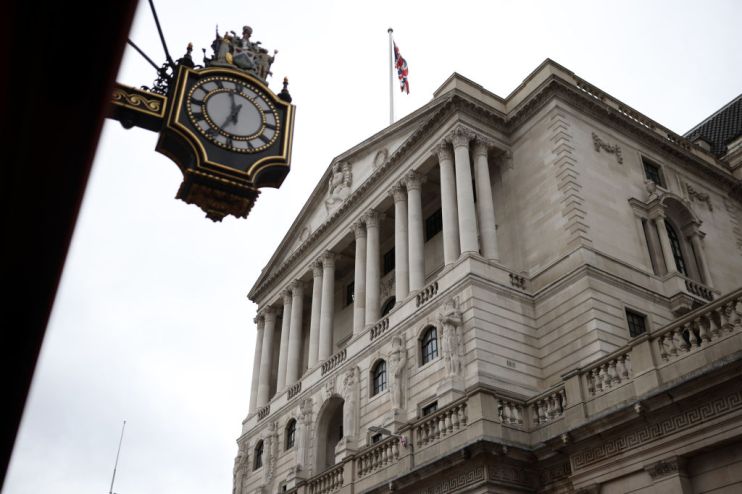UK insurance: shares in Aviva and Admiral shrug off Bank of England’s warnings of a ‘prolonged’ recession in the sector

The UK’s insurance companies were told to brace themselves for a “prolonged” recession by boosting their risk management processes, the Bank of England (BoE) has said in a letter to sector CEOs.
In a letter to insurance chief executives, the BoE’s insurance watchdog warned that various risks might stem from the downturn as it called on insurers to take “proactive steps” to assess their risk management controls.
Trade in the UK’s top FTSE 100 insurers appeared to shrug off the comments, at midday trade shares in Aviva were up 0.94 per cent, at 459.27p, while Admiral had risen 2.67 per cent to 2,267p.
The UK’s Prudential Regulation Authority (PRA) also warned that inflation was driving uncertainty in the cost of fulfilling claims and it called on insurers to factor increasing prices into its risk models.
High levels of inflation in the UK economy has driven up the costs general insurers face in fulfilling policyholders claims, due to the higher costs of materials and goods such as second hand cars.
The watchdog also warned that “adverse credit scenarios” will result in a higher risk of defaults and a greater risk that portfolios are overly concentrated in a single area, as it called on insurers to stress test their capital planning.
“In light of the multiple external uncertainties facing insurers, it is important that firms take proactive steps to assess the adequacy of their risk management and control frameworks,” the letter says.
The PRA’s letter warns that “recent events” including the liability-driven investment (LDI) crisis that saw the BoE forced to intervene in the UK’s bond market further demonstrate the importance of risk management.
The PRA also said it will continue pushing forwards with the push to overhaul the EU’s Solvency II laws that govern the amount of capital insurers must hold to reduce the risk of insolvency.
The UK’s planned Solvency II reforms are set to free up capital for investment in areas such as infrastructure and clean energy by letting ringfenced reserves be invested on a wider basis.
Insurance sector lobby groups have however warned the plans could backfire, in requiring some insurers to hold larger amounts of capital on their books.
The PRA said it will seek to “engage constructively” with those insurers impacted by the overhaul of the EU rules, as it hashes the details of the reforms.
The watchdog’s letter notes the PRA will also launch a review of the market for bulk purchase annuities (BPA’s) as it warned of an increasing “appetite” for risk in pension buy-in and buy-out deals.
The PRA’s comments come amid forecasts UK insurers could carry out £200bn worth of pension buy-out deals over the next three years – compared to £220bn over the previous decade.
2022 is expected to have been a record year for BPAs after £12bn worth of pensions de-risking deals were carried out in the first six months of last year alone.
Additionally, the insurance regulator also set out plans to boost its management of risks surrounding “non-natural” catastrophes, such as large-scale cyberattacks, as it warned the cyber insurance market remains “immature”.
The PRA’s plans come after Lloyd’s syndicate Beazley yesterday launched the world’s first cyber catastrophe bond, in its bid to develop the cyber insurance market and protect its balance sheet from the risks of covering large scale hacks.
The letter warns that climate change also continues to present an “increasing, material risk” to insurers, even as “a number of more immediate risks” have arisen over 2022.